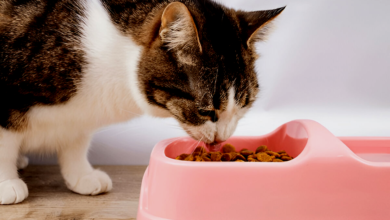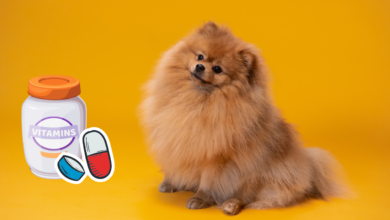
Can Pets Be Vegan? The Science Behind Plant-Based no Diets for Pets
Can pets be vegan? science behind plant-based diets for pets, including nutritional needs, risks, and vet-approved alternatives for dogs and cats.
This question has sparked heated debates among pet owners, veterinarians, and animal nutritionists. As more people adopt plant-based diets for ethical, environmental, or health reasons, some are considering extending this lifestyle to their pets. However, the nutritional needs of animals differ significantly from humans, raising concerns about whether a Pets Be Vegan diet can provide complete and balanced nutrition for dogs and cats. This article explores the science behind plant-based diets for pets, examining their feasibility, potential benefits, risks, and expert recommendations.
While dogs are omnivores and may adapt to a carefully formulated Pets Be Vegan diet, cats are obligate carnivores, requiring nutrients like taurine, arachidonic acid, and vitamin A that are naturally found in animal products. The growing market for Pets Be Vegan pet food has led to commercially available options, but pet owners must ensure these diets meet all nutritional requirements. This article delves into the latest research, ethical considerations, and practical advice for those considering a plant-based diet for their furry companions.
Can Pets Be Vegan? Understanding Their Nutritional Needs
The question of whether pets can thrive on Pets Be Vegan diets hinges entirely on their unique biological requirements. Dogs, as omnivores, possess some flexibility in their diet and can theoretically survive on carefully formulated plant-based meals supplemented with synthetic nutrients like taurine, L-carnitine, and vitamin B12. However, their digestive systems still evolved to efficiently process animal proteins, and studies show plant-based proteins often have lower bioavailability for canines. While some dogs do well on commercial Pets Be Vegan kibble meeting AAFCO standards, the long-term effects remain understudied, and individual dogs may struggle with digestibility or develop sensitivities to novel plant proteins like peas or lentils that commonly replace meat in these formulas.
For obligate carnivores like cats, the nutritional challenges become far more severe. Felines require preformed nutrients found exclusively in animal tissues – taurine, arachidonic acid, retinol (vitamin A), and certain B vitamins that their bodies cannot adequately synthesize from plant precursors. Even with synthetic supplementation, the metabolic pathways of cats are fine-tuned to extract nutrients from meat, and research demonstrates that plant-based diets often lead to subclinical deficiencies that may take years to manifest as serious health issues. The pH of a cat’s digestive system, their short intestinal tract, and specific hepatic enzymes all reflect an evolutionary design for processing meat, not plants, making truly balanced Pets Be Vegan cat nutrition exceptionally difficult to achieve regardless of supplement claims.
Dogs: Omnivores with Flexibility
Dogs, unlike their wolf ancestors, have evolved to digest carbohydrates and plant-based proteins to some extent. Studies suggest that dogs can thrive on a well-balanced Pets Be Vegan diet if it includes essential amino acids, vitamins, and minerals. Key nutrients like protein, taurine, L-carnitine, and omega-3 fatty acids must be carefully supplemented. Some commercial Pets Be Vegan dog foods are formulated to meet AAFCO (Association of American Feed Control Officials) standards, but pet owners should consult a veterinarian before making the switch.
Cats: Obligate Carnivores with Strict Needs
Cats, on the other hand, are obligate carnivores, meaning their bodies are designed to derive nutrients from animal tissue. They require taurine, an amino acid found only in meat, which is critical for heart and eye health. A deficiency can lead to blindness, heart disease, or even death. Additionally, cats need preformed vitamin A (retinol) and arachidonic acid, which are absent in plant sources. While synthetic supplements exist, replicating a cat’s natural diet remains challenging.
Risks of pet a vegan Diets for Pets
Poorly formulated Pets Be Vegan diets can lead to severe health issues, including malnutrition, weakened immune systems, and organ failure. Homemade vegan pet foods are particularly risky unless carefully balanced by a veterinary nutritionist. Symptoms of nutrient deficiencies may include lethargy, poor coat condition, muscle wasting, and digestive problems.
Ethical and Environmental Considerations
The growing interest in Pets Be Vegan diets for pets is often driven by ethical concerns about animal agriculture and the environmental impact of meat production. Many pet owners struggle with the moral dilemma of feeding their companion animals meat-based products while advocating for animal welfare and sustainability. Livestock farming is a major contributor to greenhouse gas emissions, deforestation, and water consumption, leading some to seek plant-based alternatives for their pets as a way to reduce their ecological footprint. However, this raises complex questions about whether human ethical values should override the biological needs of animals that have evolved as carnivores or omnivores. While dogs may adapt to a carefully formulated plant-based diet, imposing Pets Be Vegan on obligate carnivores like cats could be seen as contradicting the very principles of animal welfare that motivate the choice.
From an environmental perspective, research suggests that pet food production does have a significant ecological impact, with some estimates indicating that the meat used in pet food accounts for a notable portion of agricultural emissions. This has led to innovations in sustainable pet nutrition, including lab-grown meat, insect-based proteins, and plant-based alternatives designed to meet pets’ nutritional needs with a lower environmental cost. However, experts caution that any dietary shift must prioritize the animal’s health over sustainability goals. For pet owners seeking a middle ground, options like reducing meat portions in favor of high-quality, ethically sourced ingredients or supporting companies that use regenerative farming practices may offer a more balanced approach. Ultimately, the decision to feed a Pets Be Vegan diet should be made in consultation with veterinarians, weighing both ethical convictions and scientific evidence to ensure the pet’s well-being remains the top priority.
Expert Recommendations
Veterinary professionals and animal nutritionists emphasize that if pet owners choose to transition their dogs or cats to a Pets Be Vegan diet, it must be done with extreme caution. For dogs, a well-formulated commercial pet a vegan pet food that meets AAFCO (Association of American Feed Control Officials) standards is the safest option, as these products are designed to include essential nutrients like taurine, L-carnitine, and omega-3 fatty acids. However, homemade Pets Be Vegan diets are strongly discouraged unless formulated by a veterinary nutritionist, as they often lack critical nutrients, leading to severe health complications. Regular veterinary check-ups, including blood tests, are essential to monitor for deficiencies and ensure long-term health.
For cats, experts unanimously agree that a Pets Be Vegan diet is not advisable due to their biological need for animal-derived nutrients like taurine, arachidonic acid, and vitamin A. While synthetic supplements exist, replicating a cat’s natural dietary requirements without meat is extremely difficult and risky. Veterinarians warn that forcing a Pets Be Vegan diet on a cat can result in life-threatening conditions, including heart disease and blindness. Instead of a fully plant-based diet, pet owners concerned about ethics or sustainability should explore alternative solutions, such as sustainably sourced meat-based foods or reducing food waste, rather than compromising their pet’s health. The key takeaway is that any dietary changes should prioritize the pet’s well-being above personal beliefs.
Read More: How to Keep Your Pet’s Immune System Strong Year-Round
Conclusion
Can pets be vegan? The answer depends on the species and how carefully their diet is managed. Dogs may adapt to a well-planned pet a vegan diet with proper supplementation, but cats face greater risks due to their strict carnivorous needs. Pet owners must prioritize their animals’ health over personal beliefs, ensuring any dietary changes are backed by scientific research and veterinary guidance.
As the demand for plant-based pet food grows, more research is needed to evaluate its long-term effects. Until then, pet owners should proceed with caution, choosing high-quality commercial Pets Be Vegan foods or exploring alternative ways to reduce their pets’ environmental impact without compromising nutrition. The well-being of our furry friends must always come first.
FAQs
Can dogs survive on a vegan diet?
Yes, dogs can survive on a carefully balanced pet a vegan diet with proper supplementation, but consulting a vet is essential.
Is a vegan diet safe for cats?
No, cats are obligate carnivores and require meat-based nutrients like taurine, which cannot be fully replaced by plants.
What are the risks of a pet a vegan diet for pets?
Risks include malnutrition, heart disease, blindness (in cats), and weakened immunity if nutrients are not properly supplemented.
Are commercial pet a vegan pet foods safe?
Some commercial pet a vegan pet foods meet AAFCO standards, but owners should research brands and consult a veterinarian before switching.
How can I make my pet’s diet more sustainable?
Opt for ethically sourced meat, reduce food waste, or choose eco-friendly pet food brands instead of forcing a pet a vegan diet.







